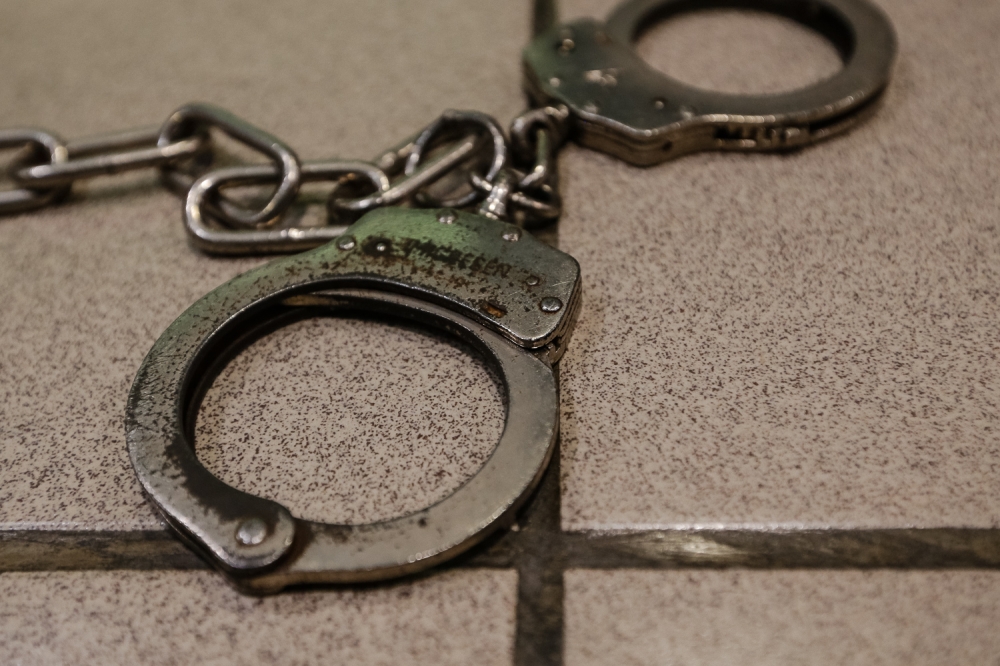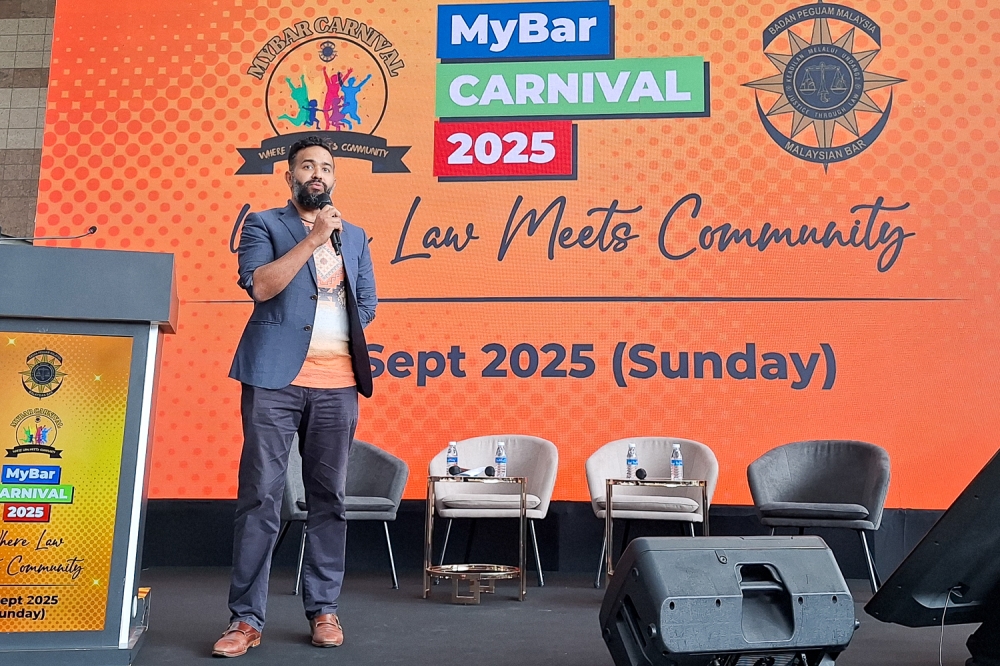KUALA LUMPUR, Oct 2 — Imagine this: You are having a party in your house with friends, and suddenly a group of men in plain clothes knock on your door, saying they are the police and want to enter.
Lawyer Collin Arvind Andrew said the first thing you should do is verify that they are indeed police officers by asking to see their identification.
This is a precaution against any robbers impersonating the police, he said.
“We have a right to be shown an authority card,” said the co-chair of the Bar Council’s National Legal Aid and YBGK Committee at the Malaysian Bar’s recent MyBar Carnival.
According to the Malaysian Bar’s “Red Book” or its “The Police and Your Basic Rights” pamphlet, these are what the colours of a police authority card mean:
• Red: Suspended police officer, has no authority to do anything to you.
• Blue (rank of Inspector and above), yellow (below the rank of Inspector), white (reserve police).
In that house party scenario given by Collin, the police officers were tipped off about suspected drug-related activities there, and found drugs on one of your friends and also in the house.
As a result, the police arrest and bring all of you to the police station.
Collin said Malaysians should be careful who they befriend: “It is also important for us to know who our friends are. Because sometimes, unfortunately, we don’t really know our friends and they bring illegal items, everyone in the house can be arrested too.”
You have a right to ask why you were arrested, and the police must tell you the reason, Collin said.
Two phone calls if arrested
Citing the Criminal Procedure Code’s Section 28A(2), Collin said you have a right to make two phone calls upon arrest:
• to your family or friend;
• to your lawyer.
“For this, the first thing they should do is contact their family members or friends, especially if their phone is still with them.
“Drop a message to inform if you can’t get through. Have someone close on speed dial, so they could immediately contact,” he told Malay Mail when contacted.
“If the call is not picked up, the police should allow another reasonable attempt,” he added.
When asked if an arrested person could use WhatsApp instead of making a phone call, Collin said: “If we read Section 28A, it must mean there ought to be a genuine attempt to communicate, so (if) via WhatsApp is the best way to reach the family for instance, then the police ought to allow via WhatsApp.”
Section 28A does not specify the method of communication, but says the police shall allow an arrested person to “communicate or attempt to communicate” with their relative, friend, and lawyer.
‘I want to speak to my lawyer first’
Collin said the police should not carry out any questioning or recording of statements until the arrested person has consulted their lawyer. (Section 28A says the police can start questioning without waiting for the legal consultation if there is concern it would lead to an accomplice’s escape, evidence destruction, witness intimidation, or safety concerns).
“The lawyer will have to liaise with the investigating officer for the purposes of meeting his/ her client. All the relevant legal advice can take place then at the police station,” Collin said.
Collin said the lawyer can also explain the process under the criminal justice system to the client, to let them understand what can or cannot take place.
Asked if the lawyer is allowed to accompany the arrested person during questioning, he said it will be up to the police, but added that lawyers should not “participate” in the recording of the statement if allowed to be present.

You are under arrest if the police say so or handcuffs you or wants to take you to the police station. Do not fight or resist arrest, but inform your family, lawyer, or the Legal Aid Centre of your arrest. — Picture by Raymond Manuel
The 24-hour limit and what’s next
After your arrest, the police can detain you for up to 24 hours without bringing you to court.
If the police want to detain you for more than 24 hours for further investigations, they will have to get a court order for your remand.
But Collin said the police also have the discretion to release you on police bail, if you can convince them that you will not run away and will cooperate with investigations.
He said your lawyer can ask the police to consider issuing a police bail.
How many more days will the court allow the police to detain you?
It depends on how many days are requested by the police, and also depends on the type of crime you are suspected of committing.
Collin said the police can apply for remand two times to complete their investigations:
1. Can ask for a maximum of four days’ remand, and another maximum of three days
• If offences’ maximum penalty is below 14 years’ jail, such as: theft; drug use or possession of drugs (Dangerous Drugs Act’s (DDA) Section 15 or Section 6, Section 12).
2. Maximum seven days’ remand, and another maximum seven days
• For offences such as robbery, rape, murder, drug trafficking, or possession of certain drug amounts (Section 39B or 39A(2), DDA)
The court can decide to grant a remand order (either for the period requested by the police or shorter than requested), or it can also refuse remand and release you.
Don’t have a lawyer? YBGK can represent you for free at remand hearings
If you did not manage to contact your family or lawyer or just do not have a lawyer, don’t worry.
When you are brought to court for remand, National Legal Aid Foundation (YBGK) lawyers who are on duty will represent you if you do not have a lawyer, regardless of your income level, Collin said.
Beware the bogus ‘lawyer’, get a real one
Collin warned that the public may sometimes be approached in court by those who “look like a lawyer” but are actually not a lawyer.
If a purported lawyer gives the impossible guarantee that “we can 100 per cent win this case”, this is a clear “red flag”, he said.
Check if a person is actually a genuine lawyer by searching the Malaysian Bar’s online legal directory: https://legaldirectory.malaysianbar.org.my/
If you cannot afford to see a lawyer, you can get free legal advice at the Malaysian Bar’s Legal Aid Centres, available in Kuala Lumpur and every state throughout Peninsular Malaysia, he said.
“If you have legal issues, most importantly, don’t go through the problem alone,” he said, stressing the importance of getting legal advice early on.
Refer to the eight-page “Red Book” to know the police’s powers and your rights, including on what to do if the police want to conduct a body search; search your car or your mobile phone.






